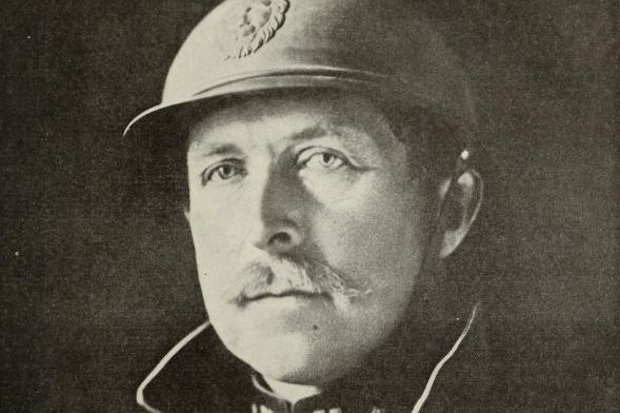From The Spectator, 17 October 1914:
NEVER did a people and their Sovereign and his Consort deserve greater honour than the Belgians and their King and Queen. They have drunk the cup of misery and horror to the very dregs. “Their heads are bloody though unbowed.” The invaders have used against them the strength of a giant and the baseness of a giant, but all attempts to terrorize them into submission have been in vain. They have disputed every inch of ground that they could dispute with heroism, yet not with the madness of despair or with mere blind courage, though there has been plenty of that. They have been inspired with something higher, with a conscious determination to make every rifle-shot, every lunge with the bayonet, tell, and to conserve • every ounce of energy, physical and moral, in their awful struggle. Their eyes and hearts have been kept always upon the supreme object—the re-creation of the kingdom now so desolate, the rehabilitation of Belgian nationhood. Like the brave men and women they are, they have never contemplated national suicide as an escape from the maddening terrors that surround them. They have practised the supreme virtue of good citizenship. They have never despaired of the republic. A people less sane, less sound of mind, might have decreed that they would let the Germane destroy Antwerp with their bombs before they resigned it to the enemy. That would have shown splendid courage, no doubt, but it would not have been wise. It was a greater thing to do what they did—to withdraw their Field Army from the entanglement of Antwerp and to evacuate the city. For the city did not surrender or make any parley with the enemy. The Belgian Field Army who were its defenders simply marched away, the military advisers of the King and of the nation holding that they would be of more use in the field than if they sold their lives, however dearly, in the Antwerp trenches. Though the Belgians do not talk of such things now, no doubt in their hearts was the feeling that they would some day repossess Antwerp. Had they been heedless of this, they would not have cared what mutilation the city suffered. But, feeling certain that they would return, they saw no reason in assisting at the destruction of their own property. That destruction could not in the least have contributed to the main success of the war.
As we write the Belgian flag is probably still flying at one or two places in the North-West of Belgium, but the Belgian Field Army and the King and Queen have already been forced to retreat over the French frontier at or near Dunkerque, and even the British Marines at Ostend have had to evacuate the town. The Belgian Ministry is already at Havre. But though the whole of Belgium will thus appear to have been inundated by the hungry flood of Germans, Belgium will still be teaching the world that nations live in men’s minds, and not in houses or tilled fields or roads or railways. As long as their spirit is not conquered the nation is not only not conquered but unconquerable. Belgium is teaching us that great lesson which Wordsworth taught us in one of the most glorious of his sonnets. She is showing us in deed, as he taught us in word, that the power of armies is a material thing, but that it cannot triumph over man’s unconquerable mind, and that the seeming victories of mere physical force are not victories in any true sense.






Comments